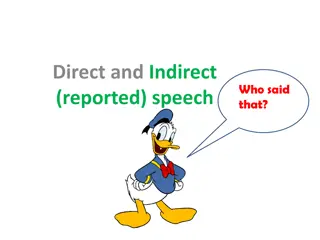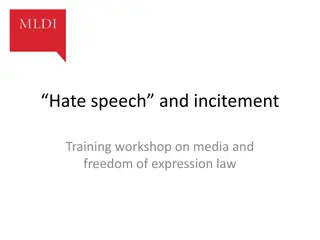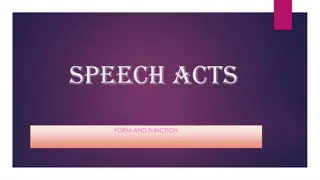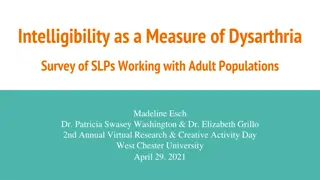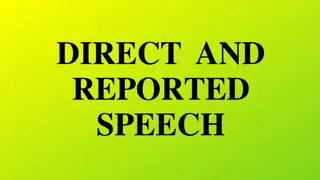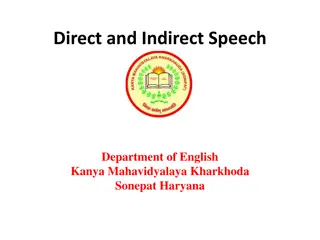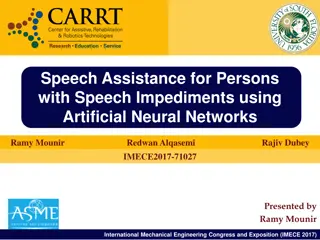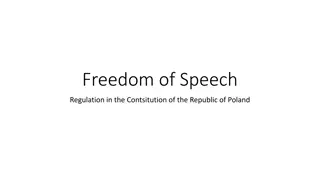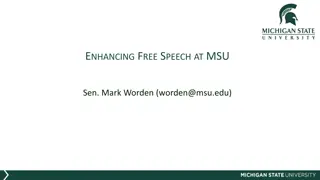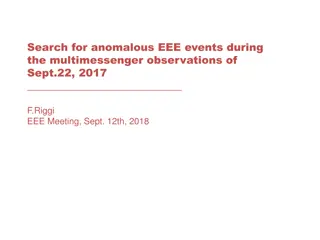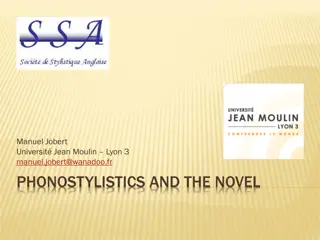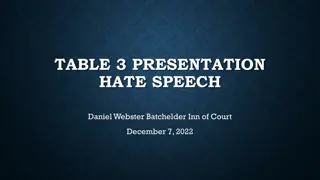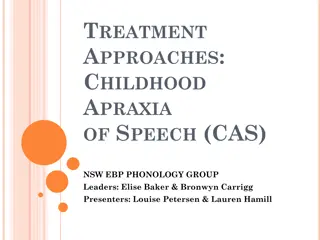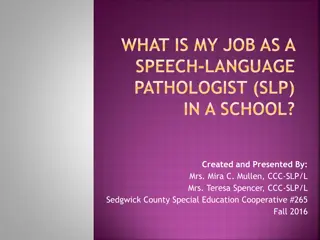Freedom of Speech and Freedom of Information: Understanding the Differences and Coincidences
Freedom of Speech and Freedom of Information are essential human rights that allow individuals to express thoughts and receive truthful information. While Freedom of Speech pertains to the expression of ideas through various means, Freedom of Information involves the communication and reception of accurate information. These rights are crucial for the development of personality and the functioning of a democratic society. Limitations exist, such as considerations of honor, privacy, and self-image. Understanding the criteria and balancing these rights is fundamental, especially in relation to the preservation of public opinion and individual rights.
Download Presentation

Please find below an Image/Link to download the presentation.
The content on the website is provided AS IS for your information and personal use only. It may not be sold, licensed, or shared on other websites without obtaining consent from the author.If you encounter any issues during the download, it is possible that the publisher has removed the file from their server.
You are allowed to download the files provided on this website for personal or commercial use, subject to the condition that they are used lawfully. All files are the property of their respective owners.
The content on the website is provided AS IS for your information and personal use only. It may not be sold, licensed, or shared on other websites without obtaining consent from the author.
E N D
Presentation Transcript
Freedom of Speech- F. of Information: Diferences According to the content: the right to F. Speech: freely Express and spread thoughts, ideas or opinions through words, in writings or any other means of reproduction F. Information: freely communicate or receive Truthful (veracious) information by any means of dissemination According to who are holders: F. Speech: Everyone has the R to express themselves Only some have the opportunity to express themselves through the Media Significant social groups (Conf) R of Access to Public Media R. Information active ==> journalists passive ==> all
Freedom of Speech- F. of Information: Coincidences Human Right of the individuls Necessary for the free development of personallity Tennat (basice principle) of a Democratic Sistem If there is no Freedom of Speech-Freedom of Information, no Public Opinion
LIMITS (GENERAL TERMS) Honour Internal side: (feeling of self-esteem:) right to have a good image of myself (self-esteem) External side: Right to have a good reputation before others Privacy: Right to have a private sphere where I can freely develop my own personality Self image: Right to expose or disseminate my image by any means (photo, engraving)
Freedom of Speech Vs. Other Human Rights Jurisprudential Criteria Freedom of Speech Other Human Rights
Constitutional Court Criteria : Freedom of Speech vs. Honour Premises While facts can be tested, opinions are not susceptible of proof Prevalent Character: Fundamental Right + Basic P of a Democratic State (public opinion) Limits, must be interpreted in a restrictive way
PRIORITY to Freedom of Speech IF 1) Its direct and principle aim, IS NOT to insult (hate speech)- F. Speech doesn't recognize a R to insult others Take into account The way through which the opinion is uttered: written media/ audio visual M. (+ likely to passionate reactions) If they insult or just reproduce an insult uttered by other: neutral report: (no animus injuriandi) 2) If there is a link between the statement veracious fact of public interest 3) Proportionality between the used expressions and the ideas transmitted ( necessary or unnecessary) 4) Profession (of the receiver of the offense (politicians) // of the one that uttered it (journalist) 5) If Context & circumstances legitimize (or justify) the expression insult as reaction ius retoquendi (the aim is not offending but reacting to an offense)
F. of information vs. Honour, Privacy & Self Image Premises Facts, unlike opinions, can be proved Prevailing nature of freedom of information : H. Rights: + Core P of a Democratic State (Public Opinion)
F. Speech, Prevalent, Prevalent, if the piece of if the piece of information is information is 1) Veracius True as exclusion of mistakes (does not demand rigorous accuracy ) Information should be elaborated with the due diligence of a good journalist Reliable sources Properly checked (if it is based on mere rumours ) Understood & properly Expressed (rigour & accuracy words (avoid misunderstanding) 2) of Public Interest according to Content: relevant, contributes to form public opinion Distinguish public interest (helps to form Public Opinion) interest of the public (audience). People : Given their job they assume the condition of public figures celebrities
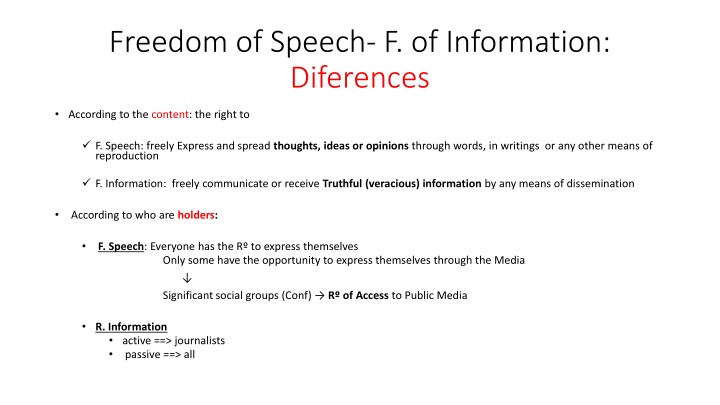

![Prevention and Combating of Hate Crimes and Hate Speech Bill [B.9B.2018]](/thumb/60513/prevention-and-combating-of-hate-crimes-and-hate-speech-bill-b-9b-2018.jpg)

